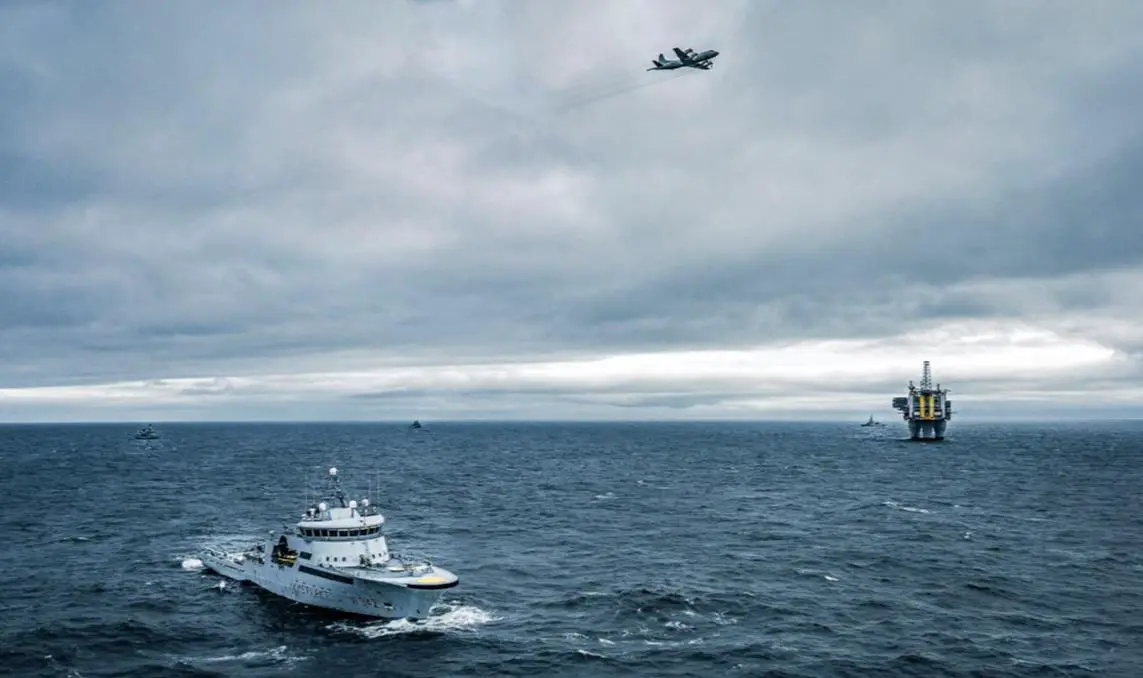The Joint Expeditionary Force (JEF) has begun a month-long series of protective military activities which sees multiple Maritime and Air units contributing to the security of Critical Undersea Infrastructure across Northern Europe. This JEF Response Option activity, called NORDIC WARDEN involves ships, aircraft, and personnel from JEF Participant Nations operating in numerous areas from the North Atlantic Ocean through to the Baltic Sea, with activity coordinated by the JEF from Northwood Headquarters, UK. Critical Undersea Infrastructure is essential for economic activity between the highly interconnected nations across northern Europe and any disruption to it, whether malign or accidental, would have a major effect on the daily lives of their populations.
NORDIC WARDEN activities bring together capabilities from all ten JEF nations to monitor shipping activity near important undersea energy and communications routes, and to coordinate the detection and interdiction of any unusual or suspicious activity in their vicinity. This activity emphasises how the JEF works alongside NATO as the region’s ultimate security guarantor. In early 2023, NATO announced the creation of a Critical Undersea Infrastructure Coordination Cell at NATO Headquarters. The centre facilitates engagement with industry and bring key military and civilian stakeholders together. The staff also shares best practices and exploits innovate technologies to boost the security of Allied undersea infrastructure.

“NORDIC WARDEN builds on the success of JEF’s first ever response option last year, also focused on Critical Undersea Infrastructure, and is part of a systematic approach to understand and respond to potential threats. Importantly, JEF is working with other stakeholders who are also working hard to contribute in this area,” said Group Captain Kevin Latchman, JEF Director of Communications.
In May 2024, leading experts from across the Alliance had the first meeting of NATO’s Critical Undersea Infrastructure Network. With rising challenges to undersea infrastructure, the Alliance is putting in place new tools to enhance the security of undersea cables and pipelines and to monitor potential threats. The JEF is a multi-national coalition of ten like-minded Northern European nations, who all share a commitment to democracy, human rights, and the rule of law. The JEF Participant Nations are Denmark, Estonia, Finland, Iceland, Latvia, Lithuania, the Netherlands, Norway, Sweden and the UK. These nations are all NATO members and they share the resolve to respond to crisis and defend the security of Northern Europe, incorporating Land, Maritime, and Air domains. JEF activities are complementary to NATO and support the Alliance’s efforts in delivering deterrence in the Euro-Atlantic Region.
















